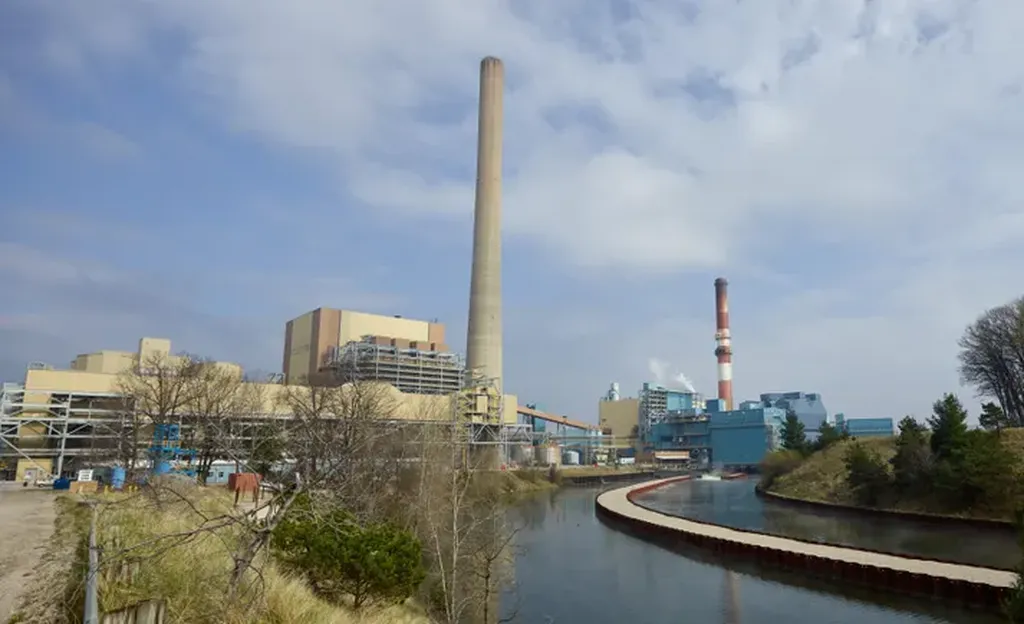The Department of Energy (DOE) has extended its streak of federal grid interventions into the winter season, issuing emergency orders for two power plants—Consumers Energy’s J.H. Campbell coal plant in Michigan and Constellation’s Eddystone Units 3 and 4 in Pennsylvania. These orders, issued under Section 202(c) of the Federal Power Act, aim to keep both plants operational through mid-to-late February 2026, pushing federal intervention past the nine-month mark for Campbell and into early 2026 for Eddystone, well beyond their initially scheduled May 2025 retirements.
The orders direct the respective grid operators—the Midcontinent Independent System Operator (MISO) for Campbell and PJM Interconnection (PJM) for Eddystone—to ensure the plants remain available for operation and to employ economic dispatch to minimize costs to ratepayers. Energy Secretary Chris Wright justified the orders, stating that they are “needed to strengthen grid reliability and will help provide affordable, reliable, and secure power when Americans need it most.” Wright also criticized “the last administration’s dangerous energy subtraction policies targeting reliable and affordable energy sources,” emphasizing the need for reliable energy regardless of weather conditions.
These measures reflect a broader institutional pivot within the DOE. On Nov. 20, 2025, the agency unveiled an updated organizational chart that elevates the Office of Cybersecurity, Energy Security and Emergency Response (CESER), which issued the new Section 202(c) orders. The realignment also created new offices for Hydrocarbons and Geothermal Energy, Energy Dominance Financing, and Artificial Intelligence and Quantum, while eliminating the Office of Energy Justice and Equity, the Office of Clean Energy Demonstrations, and the Grid Deployment Office. This shift seems to sidelined the Biden administration’s clean-energy infrastructure focus while consolidating the Trump administration’s mission around fossil fuel preservation, emergency grid management, and advanced technology.
Since May 2025, the DOE has issued 12 emergency orders under Section 202(c), targeting various fossil fuel units and infrastructure. The orders for Campbell and Eddystone are the latest in a series, with Campbell receiving orders in May, August, and November, and Eddystone in May, August, and November. The DOE cited the critical role of these plants in maintaining grid reliability, particularly during extreme weather events. For instance, Eddystone generated over 26,000 MWh during summer heat waves, and Campbell supplied an average of 509,000 MWh per month this summer, helping MISO manage numerous grid alerts.
The orders also acknowledge the practical difficulties of restarting retired fossil units. For Campbell, the DOE noted that any stop-and-start operation could cause failures requiring 30 to 60 days to repair, and that disassembly or other terminal actions would complicate resumption. Similarly, for Eddystone, the DOE emphasized the challenges of resuming operations due to employment, contract, and permitting issues.
However, the orders have drawn sharp criticism and legal challenges. Michigan Attorney General Dana Nessel filed a motion to stay DOE’s third order for Campbell, asserting that the directive is “arbitrary and illegal” and based on an “outdated reliability assessment report to fabricate the emergency.” Nessel also filed petitions for review to the U.S. Court of Appeals for the D.C. Circuit on the prior two Section 202(c) orders. Consumers Energy disclosed in its latest earnings report that the initial 90-day emergency-order period for Campbell resulted in a net financial impact of $53 million after accounting for market revenues.
The DOE’s actions and organizational realignment signal a significant shift in energy policy, prioritizing fossil fuel preservation and emergency grid management over clean energy initiatives. This pivot could have profound implications for the energy sector, potentially slowing the transition to renewable energy sources and increasing reliance on fossil fuels. The legal challenges and financial impacts of these orders also highlight the contentious nature of federal interventions in the energy market. As the DOE continues to issue emergency orders, the debate over energy policy and grid reliability is likely to intensify, shaping the future development of the sector.

